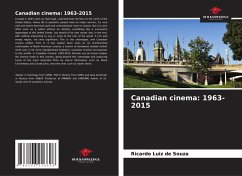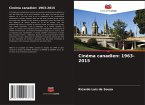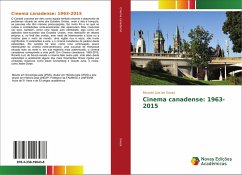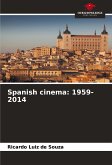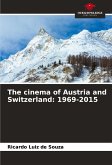Canada is often seen as that huge, unproblematic territory to the north of the United States, where life is peaceful, people have no major worries, it's very cold and where American guilt and contradictions have no impact. But it is also often seen as a nation without an identity; something like a successful appendage of the United States, but devoid of its own values and, in the end, with nothing interesting to say or show to the rest of the world. A rich and empty region, not very significant. This is the stereotype, and Canadian cinema suffers from it. It has always been seen as an uninteresting continuation of North American cinema; a branch of Hollywood located further north and, in its more standardised trajectory, Canadian cinema corresponds to this profile. In Canadian Cinema: 1963-2015, Ricardo Luiz de Souza studies the cinema made in this country, going beyond this stereotype and analysing some of the most important films by classic filmmakers such as David Cronenberg and Claude Jutra, and new ones such as Xavier Dolan.
Bitte wählen Sie Ihr Anliegen aus.
Rechnungen
Retourenschein anfordern
Bestellstatus
Storno

